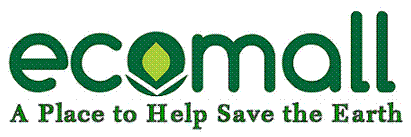

WHY ORGANICS?

At this point, most people are familiar with organic food and produce, as well as the potential benefits to consuming organic products. Yet, for many, the benefit of organic fabrics and textiles is unclear. The connection between eating food that was produced without pesticides, fertilizers, or hormones and living a healthier life is simple, but it is that same connection that can be made to demonstrate the benefit of organic textiles. So what are organic textiles, where are they manufactured, what does the "organic" label mean, and what is the benefit of using organic fabrics?
Basically, organic textiles are fabrics that are made from natural fibers (like cotton, wood, etc.) without the use of fertilizers or pesticides. This also means that if there is any bleaching done, it is done without chlorine, and any dyes used would have to be organic dyes. Lastly, this means there can be no finishers, fire retardants, or other commonly used chemicals used on the fabric while it is being processed. Ever wonder what makes a fabric wrinkle-free or stain resistant? It's often a cocktail of VOC's (volatile organic compounds).
There are several certifying agencies that specialize in ensuring that textiles truly are organic. In the United States, the USDA certifies materials, food, and even finished products as USDA Certified Organic. In addition to single certifying agencies, there are also large, extensive organizations like GOTS (Global Organic Textile Standard). This international "working group" is comprised of four, smaller member organizations, OTA (US), Soil Association (UK), JOCA (Japan), and IVN (Germany). This working group draws upon the experience and expertise of the four, national organic organizations to create an overarching standard for not only the production of textiles, but also guidelines for the working conditions of the employees as well as standards to be met throughout the entire supply chain and production. So in the case of an organization like this, the product, the transportation, the process, and even the employees all have to meet certain standards to be considered for certification. This means teams of certifiers have to visit and inspect every aspect of the production from the farm ground to the finished product.
But what does all this mean? It has taken literally decades for chemicals to become so pervasive in our way of life that they a part of everything we do, eat and consume. Slowly people are beginning to question the extensive use of chemicals in our food, personal care products, and yes, our clothing. And as research continues and knowledge of the long term consequences of exposure and use to many of these grows, many people are making the decision to try to reduce this exposure.
For the growing number of people affected by chronic skin problems, like eczema and dermatitis, as well as for those with chemical sensitivities, organic textiles are quickly becoming a preferred choice. Organic textiles are also cultivated in a way that promotes sustainability without the reliance on chemical fertilizers, pesticides and insecticides, and some certifications ensure that the products aren't produced in sweatshop conditions. So for all these reasons, organic textiles and fabrics can, and do, make a difference. If you are looking for certified products, keep the organizations mentioned here, in mind. They are not the only reputable certifying agencies, but they are certainly a good place to start.
Click below to e-mail this article to a friend
or to post a link on your favorite sites.
Thank you!
 |
RELATED LINKS:

Updated Daily!
| * * * IN-HOUSE RESOURCES * * * |
|---|





